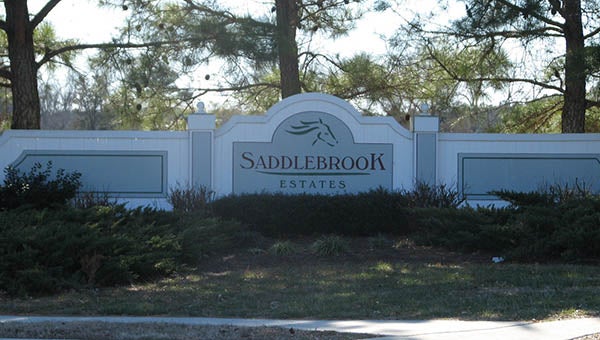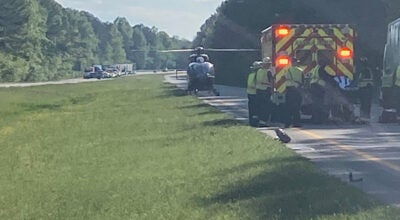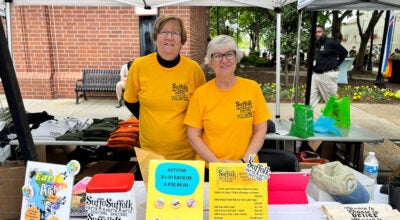Suit to get second look
Published 8:56 pm Saturday, January 31, 2015

The entrance to Saddlebrook Estates, where the homeowners’ association has sued the city over a tax bill.
A Suffolk homeowners’ association has filed a motion to reconsider after a lawsuit it filed against the city was dismissed on Jan. 9.
The Saddlebrook Estates Community Association does not believe Judge Carl Eason’s decision was in accordance with state law, attorney Barry Koch said.
“Basically, we’re saying the city doesn’t have the right to tax the leasehold, because they took that sort of position at trial,” Koch said.
He said the plaintiff was unprepared to argue against that position because the city failed to signal in previous filings it would take that position.
The homeowners’ association sued after the city began taxing its open space because of a commercial enterprise — an equestrian center — on the property. The association didn’t pay the tax, and the city threatened to auction the property for unpaid taxes.
The 151-lot subdivision off Kings Fork Road, developed by Reese Smith Associates, was planned around an existing farm. The former owner had wanted the equestrian center to remain.
Smith testified on Jan. 9 that the center is a “visual amenity and a use amenity,” but property owners in the development say they aren’t allowed to walk onto the grounds of the equestrian center.
Resident Art Doss said he and other residents get hardly anything for the homeowners’ association fees they pay, and he doesn’t know what they’re going toward.
“We ought to get something for that,” he said, adding the community has no clubhouse, pool, playgrounds or sporting courts such as for basketball or tennis.
He said homeowners get a discount on boarding horses at the center. But, according to testimony on Jan. 9, Saddlebrook residents own only four of the horses at the 32-stall center.
Doss also said he and other residents were not told until after they bought their homes that the association owned the land on which the horse farm was situated.
Open space in subdivisions is not supposed to be taxed, but rather its value is reflected in the increased assessments of lots benefiting from the open space.
But in 2012, the city sent a tax bill to United Property Associates, the association manager, for fiscal years 2009 through 2011. When the group didn’t pay, the city put a lien on its bank accounts and took the money — about $23,000.
Lawyers protested, and the city eventually decided David Christiansen, not the property association, was responsible. It refunded United Property Associates and started going after Christiansen instead.
Christiansen, the owner of the horse farm operation, has yet to pay, and about a year ago the city started proceedings to auction the land for unpaid real estate taxes. That’s when the association sued.
Reese Smith Sr. did not return a call this week seeking comment.
The motion to reconsider will be heard April 14.






